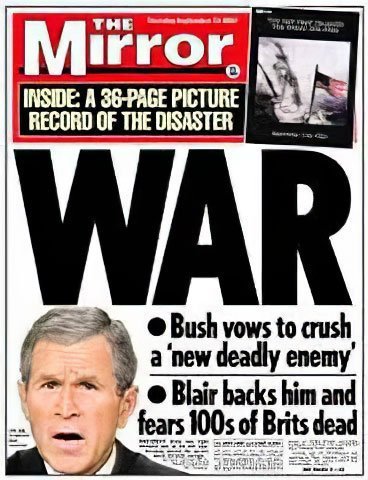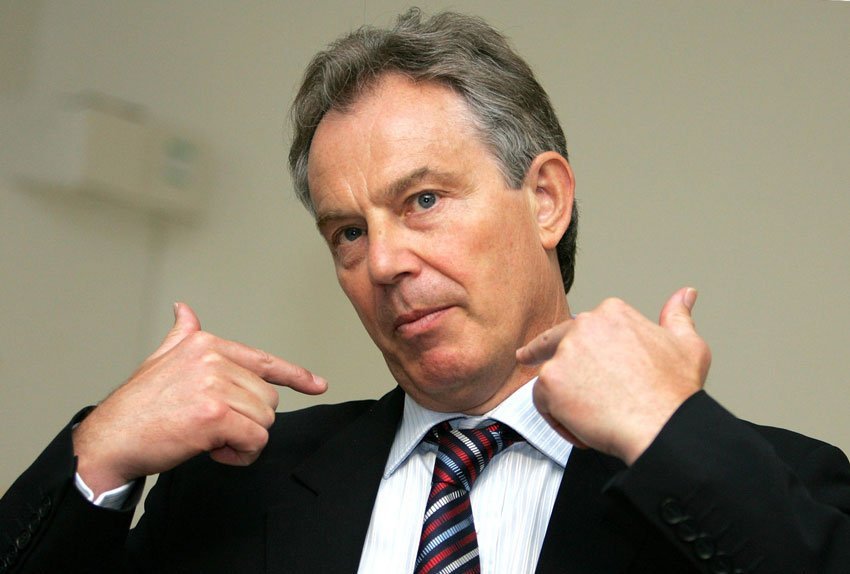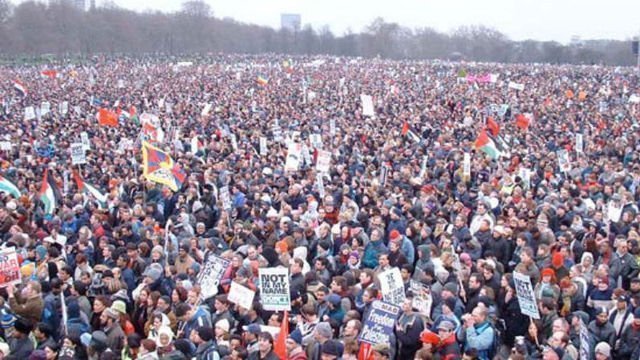
Surely this was not the UK’s exit strategy from a 20-year conflict.
Jeremy Corbyn along with a number of cross-party MPs including former soldier and Tory MP Tobias Ellwood has urged prime minister Boris Johnson to carry out a formal inquiry into the Afghan war.
Both MPs pointed to the failings throughout the Afgan war, Tobias Ellwood a former combat veteran of the Royal Green jackets stated:
“This cannot be the exit strategy that we ever envisaged,” Ellwood said during a Commons urgent question. “Our nation and our military deserve answers so I request a Chilcot-style inquiry, so we can learn the lessons of what went wrong.”
According to Ellwood, the inquiry should dig into why Western allies “squandered the relative peace of the first four years” of their presence in Afghanistan. It should also, he said, look at why the Taliban were excluded from peace talks in 2001, as well as why allies adopted what he called an “overcentralized Western model of governance” for the country.
And he said it should probe the time taken to build up Afghan security forces, as well as why neighbouring Pakistan was allowed to harbour and train Taliban fighters.
While Ellwood said Britain’s enemies cannot be defeated by military means alone, he warned that “if we depart completely, a dangerous part of the world becomes more dangerous as the Taliban assumes control of the bulk of the country and once again gives sanctuary to extremist groups.”
Stewart McDonald, a Scottish National Party MP, backed Ellwood’s call for a Chilcot-style inquiry. “If we are all committed to getting this right, that’s the kind of thing that surely needs to happen,” he said.
“it would be a dereliction of duty not to ask what went so wrong. We now abandon the country to the fate of the very insurgent organisation we went in to defeat in the first place.”
“If we do not learn the lessons of failing to appreciate Afghan history, the folly of imposing western solutions, the delays in training Afghan security forces and denying the Taliban a place at the table back in December 2001, we are likely to repeat similar mistakes. I ask the Prime Minister: please conduct a formal inquiry.
Jeremy Corbyn pointed out the loss of British military personnel and that of other nations including the countless losses of civilians during this 20-year conflict. Corbyn also pointed to the many thousands of Afghan people who have lost their lives and many more have been forced to be refugees in exile all around the region as well as in western Europe.
Corbyn stated: “Surely we need an inquiry into how such a decision came around to go into Afghanistan in the first place, and now the withdrawal from Afghanistan and of course the chaos that is being left behind.”
In calling for an inquiry Jeremy Corbyn also asked the question about foreign policy decisions to go to war.
“While Britain is withdrawing, surely we need to recognise that when we make hasty foreign policy decisions to go to war, the consequences go on for a very long time. In this case, it is now the 20th anniversary of such a decision.”
A Brief look atThe British war in Afghanistan

The war in Afghanistan spanned the tenures of three prime ministers, and cost the lives of 454 British service personnel and thousands of Afghans. What was accomplished after 13 years of conflict, which included eight years of heavy fighting in Helmand, still remains open to debate.
- 454 British service personnel
- 615 people were seriously or very seriously wounded and 2,187 people were wounded in action.
- The Net Additional Costs from 2001 to 2018 of Operation Herrick were £22.2 billion.
- In 2020, 10,900 Afghani soldiers are estimated to have died
- Civilian deaths: Brown University’s Watson Institute puts the total death toll at 157,000.
The legacy of this two-decade conflict will be long disputed. When America, along with its allies including the UK, launched ‘Operation Enduring Freedom’ less than a month after the 9/11 attacks, few could have guessed it would be stepping into its longest war or the total destabilisation of the middle east and Afghanistan.
The invasion of Iraq two years later, and a broader War on Terror that included the invasion of Afganistan left the public with many unanswered questions not least the role of the British military and its rapid change under Tony Blair’s tenure from a defence force to an invasion force.
On 20 September, Bush made a speech to Congress that was televised live and watched by 80 million Americans. Before he did so, however, he took time to welcome a particularly honoured guest. Tony Blair was in Washington.
Bush ushered him into the White House Blue Room for a 20-minute private chat, so that he could confide in him that they were not just going to bomb Afghanistan, but send ground troops too. Blair was flattered to be given this personal briefing so soon before a speech that could make or break his presidency, but Bush said that he “appreciated the company of my friend.”

It was only days later Tony Blair committed British personal to war in Afganistan using that umbrella of the war on terror, he stated to the nation:
“No country lightly commits forces to military action and the inevitable risks involved.”
We made clear following the attacks upon the US on September 11 that we would take action once it was clear who was responsible. There is no doubt in my mind, nor in the mind of anyone who has been through all the available evidence, including intelligence material, that these attacks were carried out by the al-Qaida network headed by Osama Bin Laden.
Equally, it is clear that they are harboured and supported by the Taliban regime inside Afghanistan.
It is now almost a month since the atrocity occurred. It is more than two weeks since an ultimatum was delivered to the Taliban to yield up the terrorists or face the consequences.
It is clear beyond doubt that the Taliban will not do this. They were given the choice of siding with justice, or siding with terror. They chose terror.
Blair’s punch line:
“I also want to say very directly to the British people why this matters so much to Britain. First, let us not forget that the attacks of September 11 represented the worst terrorist outrage against British citizens in our history. The murder of British citizens, whether it happened overseas or not, is an attack upon Britain. But even if no British citizen had died, we would be right to act. This atrocity was an attack on us all, on people of all faiths and people of none. We know the al-Qaida network threaten Europe, including Britain, and indeed any nation throughout the world that does not share their fanatical views. So we have a direct interest in acting in our self defence to protect British lives.”
“It was an attack on lives and livelihoods. The airlines, tourism and other industries have been affected, and economic confidence has suffered with all that means for British jobs and business. Our prosperity and standard of living require us to deal with the terrorist threat.”
The bombing of Afghanistan began on 7 October 2001, drawing that wretched country into one of the longest wars in modern history, which would cost the lives of 454 British servicemen, more than 2,000 Americans, and no one knows how many Afghans. The United Nations began counting Afghan civilian deaths in 2007 and had reached 11,864 by 2011.
It was arguably a longer, bloodier failure than the Iraq war, but it was never as damaging to Blair’s standing at home. It did not provoke mass street protests or a major parliamentary rebellion, because the links between the Taliban, al-Qaeda and the 11 September attacks was well understood, so the British public at least they thought they understood why troops had gone into Afghanistan.
Britain’s war in Helmand sputtered to a close in 2014 after multiple losses and few gains.

The Labour Prime minister Tony Blair took the UK military not only into Iraq where the UK carried out an illegal war based on a lie but in his first six years of office, Blair ordered British troops into combat five times in total, more than any other prime minister in British history.
This included Iraq in both 1998 and 2003, Kosovo (1999), Sierra Leone (2000) and Afghanistan (2001).
People want to know how a Labour Prime Minister ignored over a million people marching through the capital city of London to say ‘NO TO WAR!’ over Iraq and then went on to commit our forces to an even longer campaign in a foreign country.

One legacy of Tony Blair’s tenure is the Chilcot report, if there is anything to be gained by that report it should be to encourage us to be bolder in challenging authority, in being sceptical of official claims, in standing firm against an aggressive agenda spun by the media.
It’s only fitting knowing what we know now and after the Chilcot report that there is an inquiry into “how and why” the UK came to the decision that committed our forces to war in Afghanistan at the cost to so many. Our nation and our military deserve answers we must have a Chilcot-style inquiry, so we can learn the lessons of what went wrong.
Jeremy Corbyn called for an inquiry into the war in Afghanistan: Full statment.
This has to be a day of reflection. We have spent billions of pounds in the war in Afghanistan, 450 British troops have lost their lives, thousands of Americans and other troops have lost their lives, many, many thousands of Afghan people have lost their lives and many more have been forced to be refugees in exile all around the region as well as in western Europe.
Surely we need to think about this very carefully. It is disappointing that the Prime Minister appeared to reject calls for an inquiry at the Liaison Committee yesterday and appeared to reject the request for an inquiry made by the right hon. Member for Bournemouth East (Mr Ellwood) today. May I ask him to think again about that? Surely we need an inquiry into how such a decision came around to go into Afghanistan in the first place, and now the withdrawal from Afghanistan and of course the chaos that is being left behind.
The Prime Minister will have noted that some talks are going on, which have been cautiously welcomed by the United States, in Tehran between the Afghan Government and the Taliban. He will also have noted that there are large numbers of Afghan refugees now in Tajikistan as well as in Pakistan.
What efforts will the Prime Minister be making to try to ensure that there is not a descent into civil war but some kind of diplomatic initiative at least to bring about security for the people of Afghanistan, and obviously that includes the entire population, particularly those children who have suffered so much and those women who have been so grievously discriminated against in that country?
While Britain is withdrawing, surely we need to recognise that when we make hasty foreign policy decisions to go to war, the consequences go on for a very long time. In this case, it is now the 20th anniversary of such a decision.
Support Independent Journalism Today
Our unwavering dedication is to provide you with unbiased news, diverse perspectives, and insightful opinions. We're on a mission to ensure that those in positions of power are held accountable for their actions, but we can't do it alone. Labour Heartlands is primarily funded by me, Paul Knaggs, and by the generous contributions of readers like you. Your donations keep us going and help us uphold the principles of independent journalism. Join us in our quest for truth, transparency, and accountability – donate today and be a part of our mission!
Like everyone else, we're facing challenges, and we need your help to stay online and continue providing crucial journalism. Every contribution, no matter how small, goes a long way in helping us thrive. By becoming one of our donors, you become a vital part of our mission to uncover the truth and uphold the values of democracy.
While we maintain our independence from political affiliations, we stand united against corruption, injustice, and the erosion of free speech, truth, and democracy. We believe in the power of accurate information in a democracy, and we consider facts non-negotiable.
Your support, no matter the amount, can make a significant impact. Together, we can make a difference and continue our journey toward a more informed and just society.
Thank you for supporting Labour Heartlands











